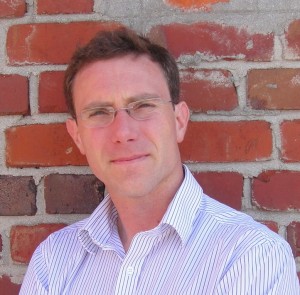Each week Emerging Markets ESG publishes an interview entitled, “Five Questions about SRI.” The interview features a practitioner’s insights about SRI in emerging markets and through Emerging Markets ESG shares this expertise with a wide global audience. The goals of Five Questions about SRI are fourfold:
- To reflect on what SRI in emerging markets means to practitioners;
- To collect a catalogue of examples of SRI in practice in emerging markets;
- To raise awareness about SRI in emerging markets; and
- To enable SRI practitioners in emerging markets to network with peers around the world.
This week’s interview is with Gaëtan Herinckx, Senior Investment Analyst, Sustainable Capital, Mauritius.
Sustainable Capital is an independent, owner-managed, responsible investment asset manager that specialises in the research and management of listed African equities. Gaëtan has ten years’ sustainable investment experience. He joined Sustainable Capital from Dexia Asset Management in Belgium where he was Head of Sustainable and Responsible Investment.
Emerging Markets ESG: How would you define socially responsible investment (SRI)?
 Gaëtan Herinckx: Sustainable and Responsible Investment (SRI) encompasses any investment strategies which systematically integrate Environmental, Social and Governance (ESG) challenges into their investment decision process.
Gaëtan Herinckx: Sustainable and Responsible Investment (SRI) encompasses any investment strategies which systematically integrate Environmental, Social and Governance (ESG) challenges into their investment decision process.
It has to be systematic i.e. not a random process and has to incorporate the three dimensions i.e. a “green fund” might be an unsustainable investment given some social or governance challenges.
Emerging Markets ESG: What distinguishes SRI from mainstream investment?
Gaëtan Herinckx: The difference lies in the DNA of the investment philosophy. Indeed, SRI philosophy is that the sustainability performance of countries and companies is fundamentally linked to long-term investment returns while mainstream/traditional investment philosophy tends to ignore/underestimate these challenges (due mainly to short-termism) and focus only on financial criteria.
At the end of the day, this comes back to two basic questions: “Do you believe the world is facing major environmental, social and governance challenges? Do you believe these challenges are/will significantly contribute to the long term success or failure of companies’ business models and ultimately shareholder value?”
Emerging Markets ESG: Which extra-financial theme – environmental, social or governance – is the most challenging for African companies to manage?
Gaëtan Herinckx: Sustainability risks and opportunities have major impacts on asset valuations in African countries, yet often mispriced (both over- and under-valued) by financial markets.
At the country level, this mainly includes political stability, government effectiveness, infrastructure quality, rule of law, human capital, control of corruption, climate change exposure, environmental stability and regulatory quality.
At a company level, key sustainability factors include human capital, asset quality, quality of corporate governance, socio-environmental balance sheet, sustainability practices, stakeholder capital and structural competitive advantages. We focus on the sustainability risks and opportunities that are material to a company’s core business and industry-specific. As an example, for Nigerian banks, human capital is highly material and we research the sustainability intelligence of the management team and the extent to which they integrate environmental, social and governance risks into the bank’s lending practices. For copper mines in Zambia, stakeholder capital is material to performance as a poor relationship with the government can threaten the company’s license to operate.
Emerging Markets ESG: Which extra-financial theme – environmental, social or governance – is the most challenging for investors in Africa to analyze?
Gaëtan Herinckx: The major hurdle for investors is generally the lack of transparency and disclosure of African companies irrespective of the ESG dimension. Therefore, Sustainable Investment in Africa demands a hands-on, in-situ investment research process including extensive bottom-up company analysis and due diligence including management interviews and site visits.
For instance, at Sustainable Capital, we have already conducted more than 250 management interviews and site visits over the last two years. This has enabled us to identify many world-class companies that are ahead of international best practice in terms of sustainability despite the lack of transparency.
Emerging Markets ESG: Please introduce your African equity SRI fund and explain how it has generated sustainability alpha.
Gaëtan Herinckx: The Africa Sustainability Fund is a long-only, 50-stocks portfolio diversified across African geographies, currencies, sectors and companies. The net effect of our investment process is to aggressively up-weight (or allocate more capital) to the stocks and currencies in the most sustainably managed companies and countries (and vice versa). The “sustainability alpha” has been close to 5% in one year (since the inception of the Africa Sustainability Fund – November 1, 2009) representing about 80% of the Fund total outperformance.